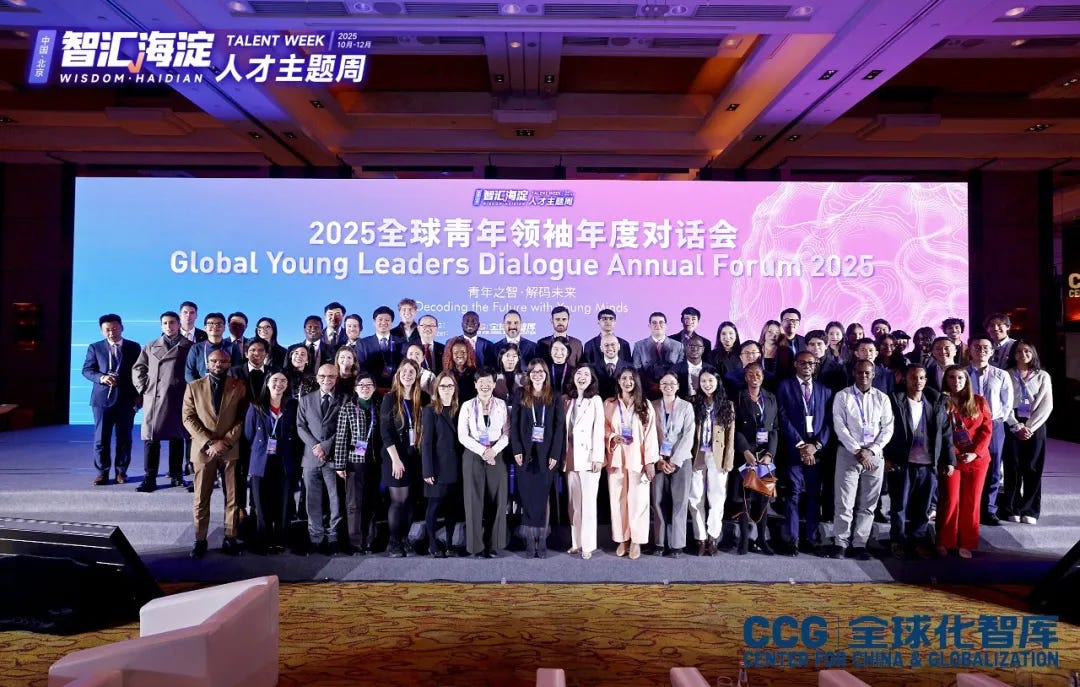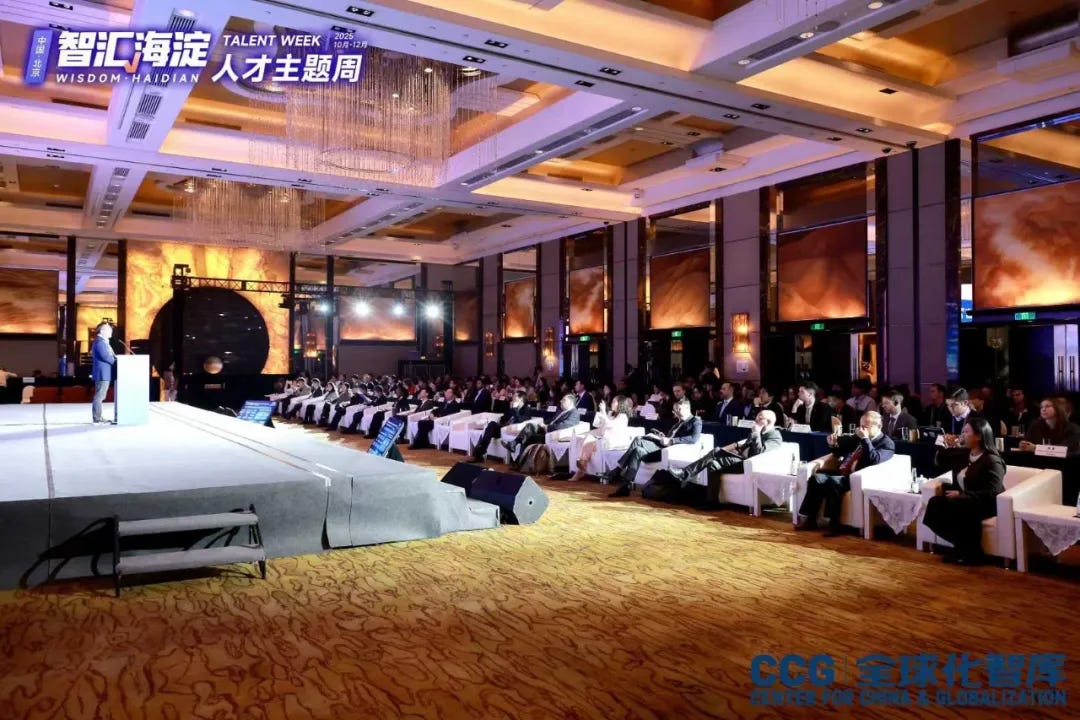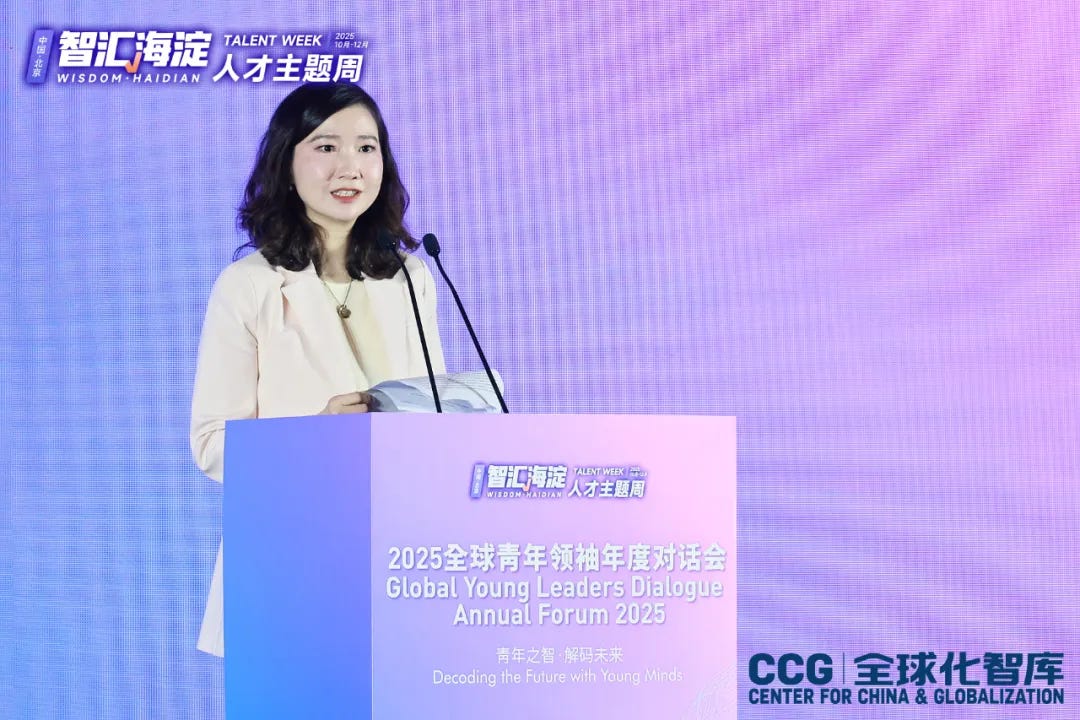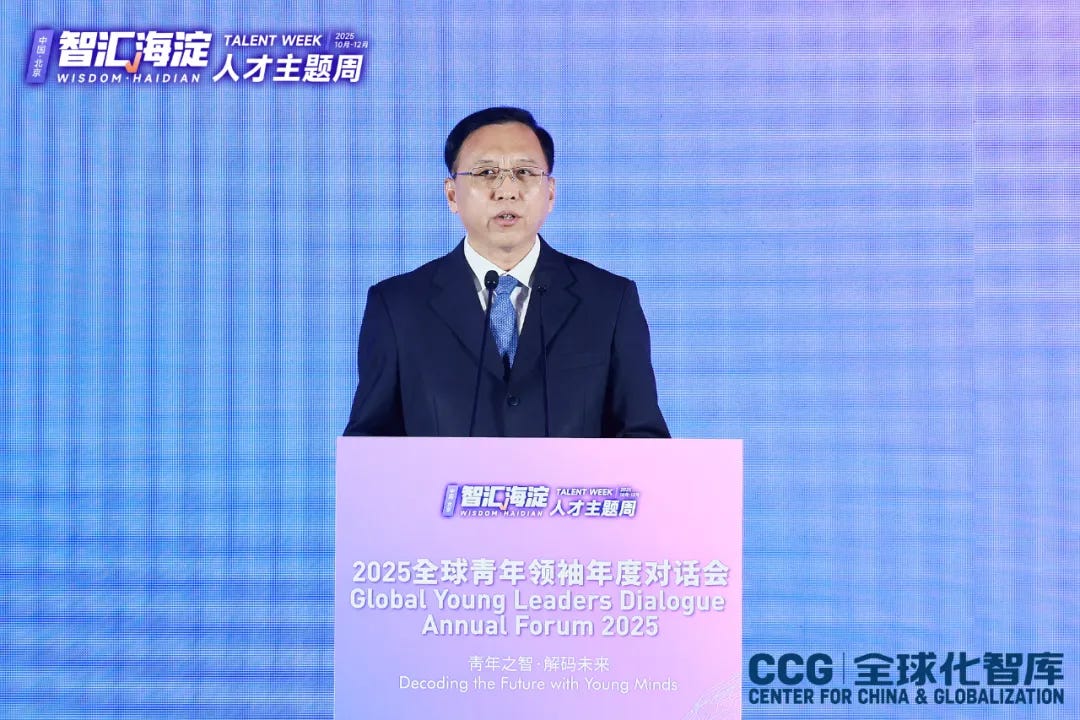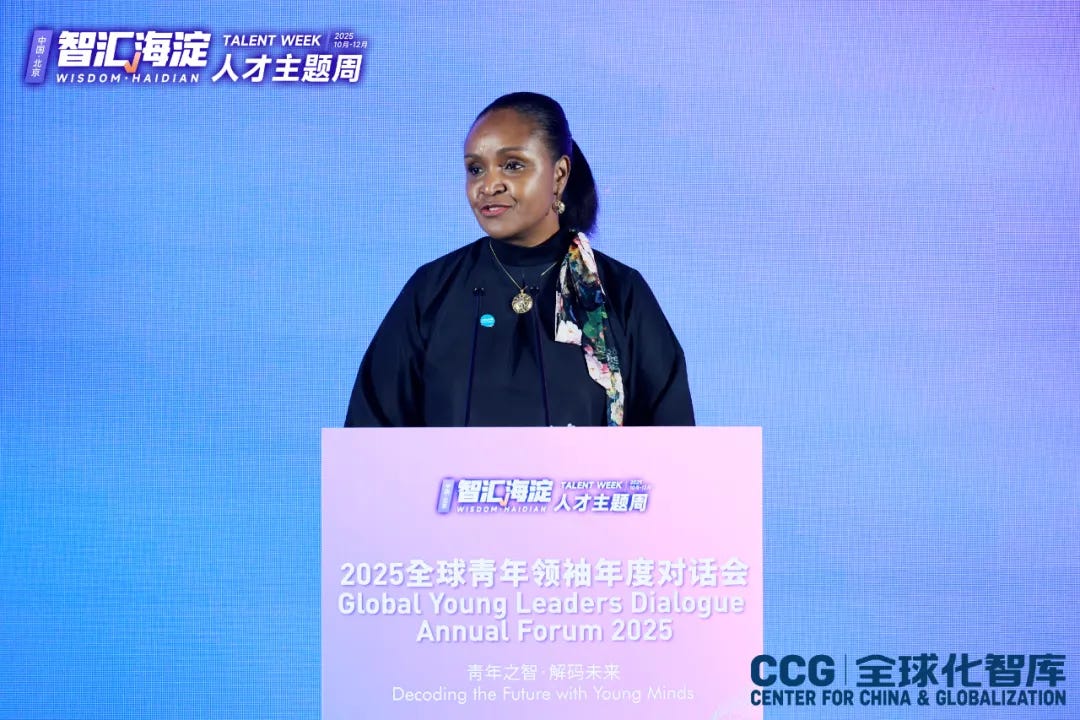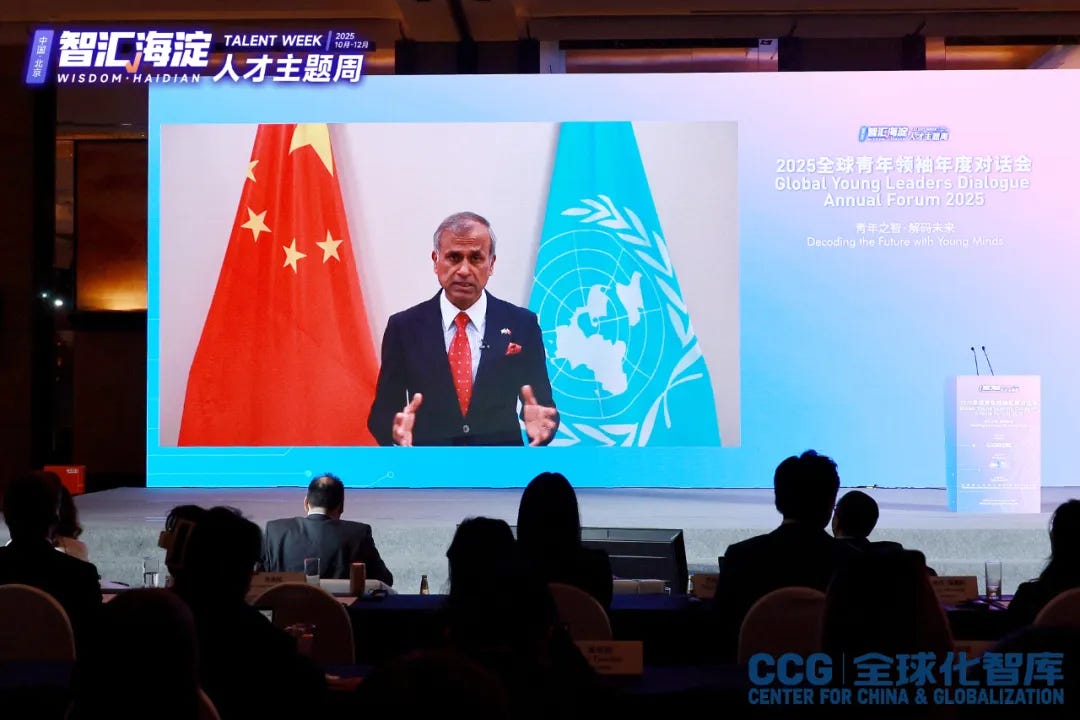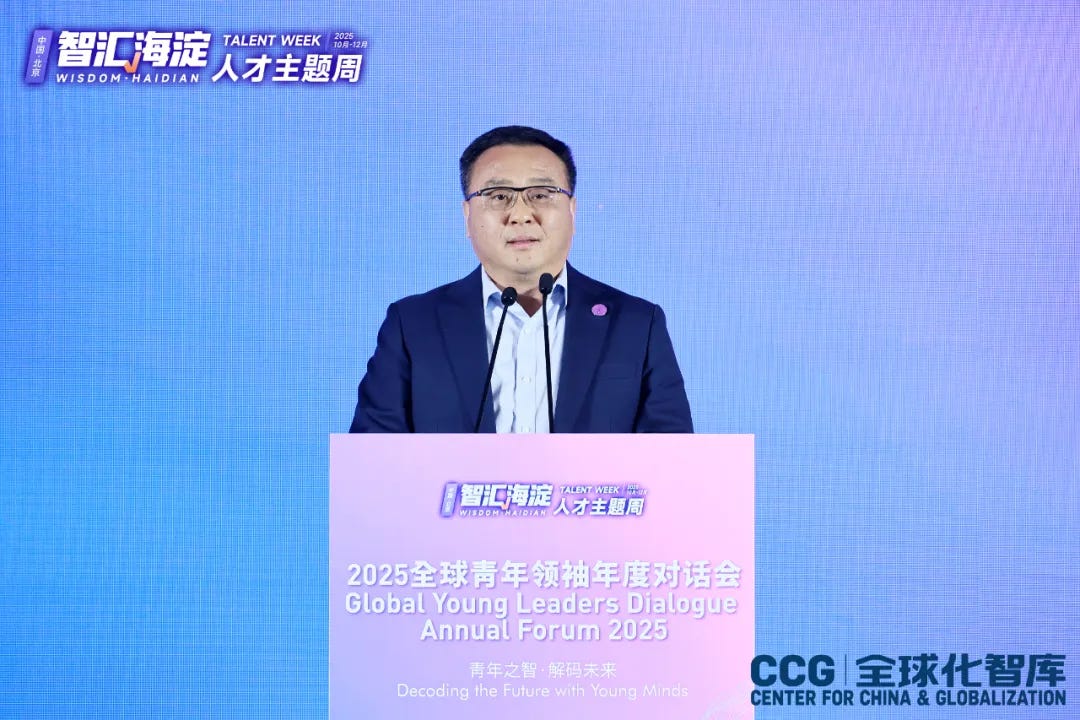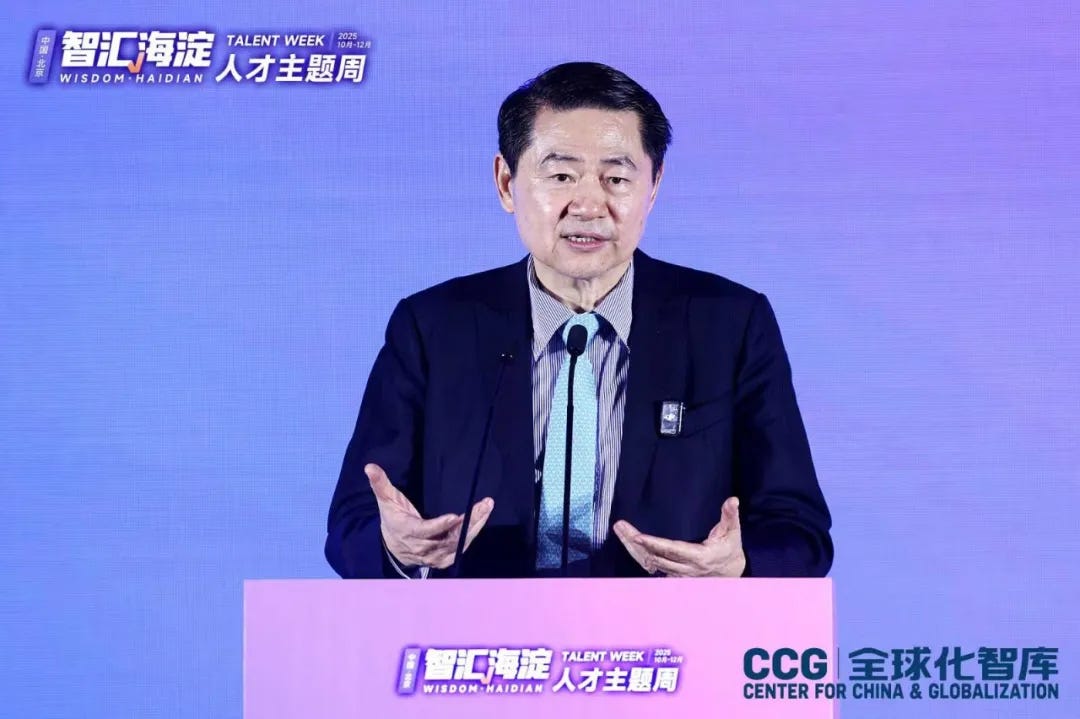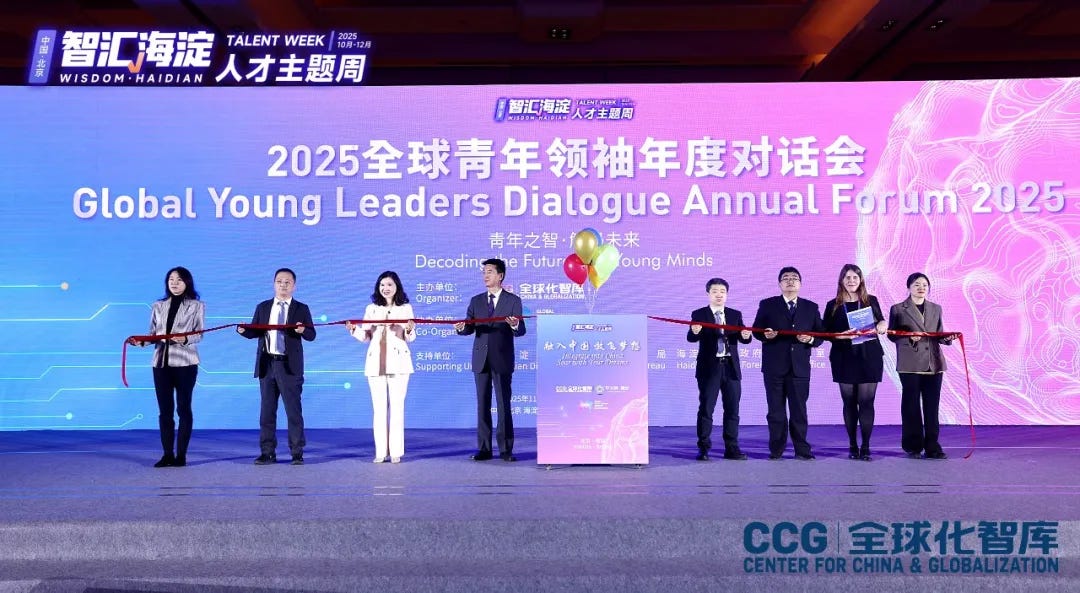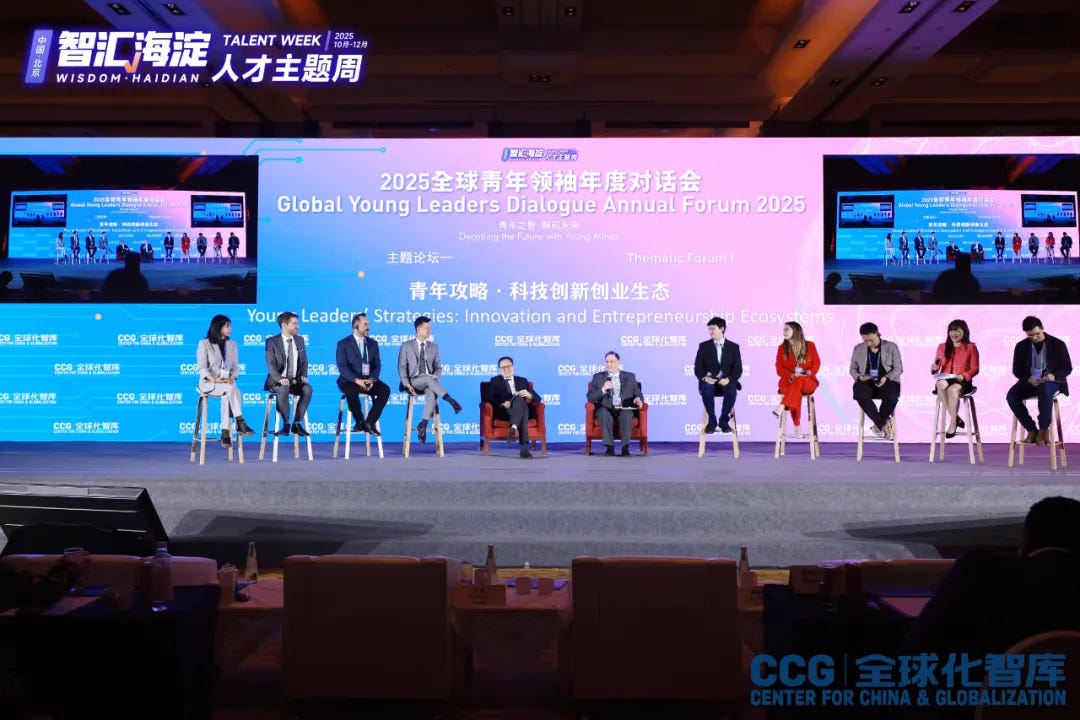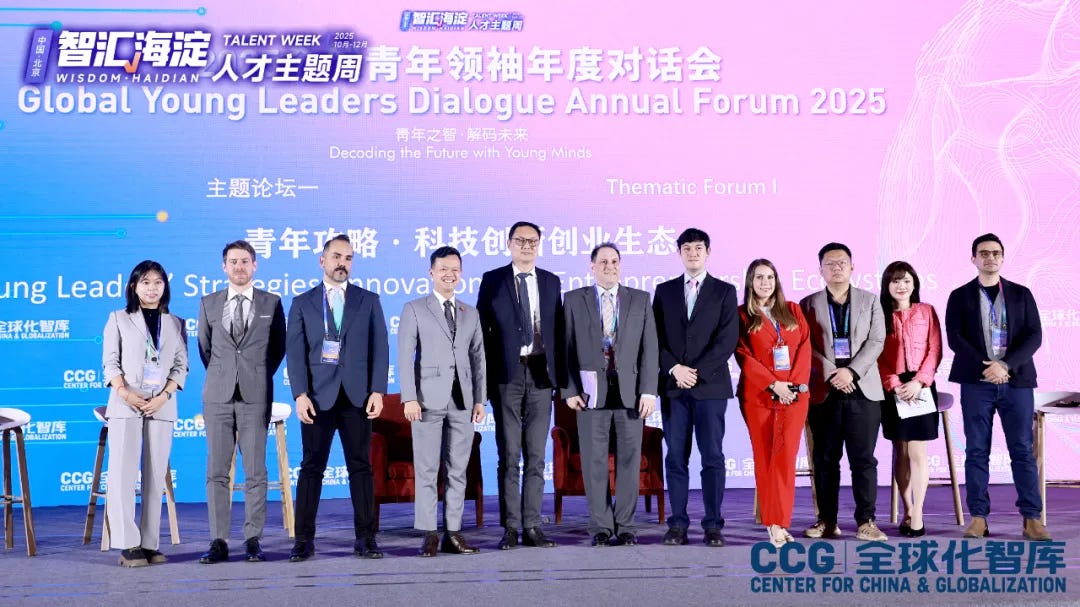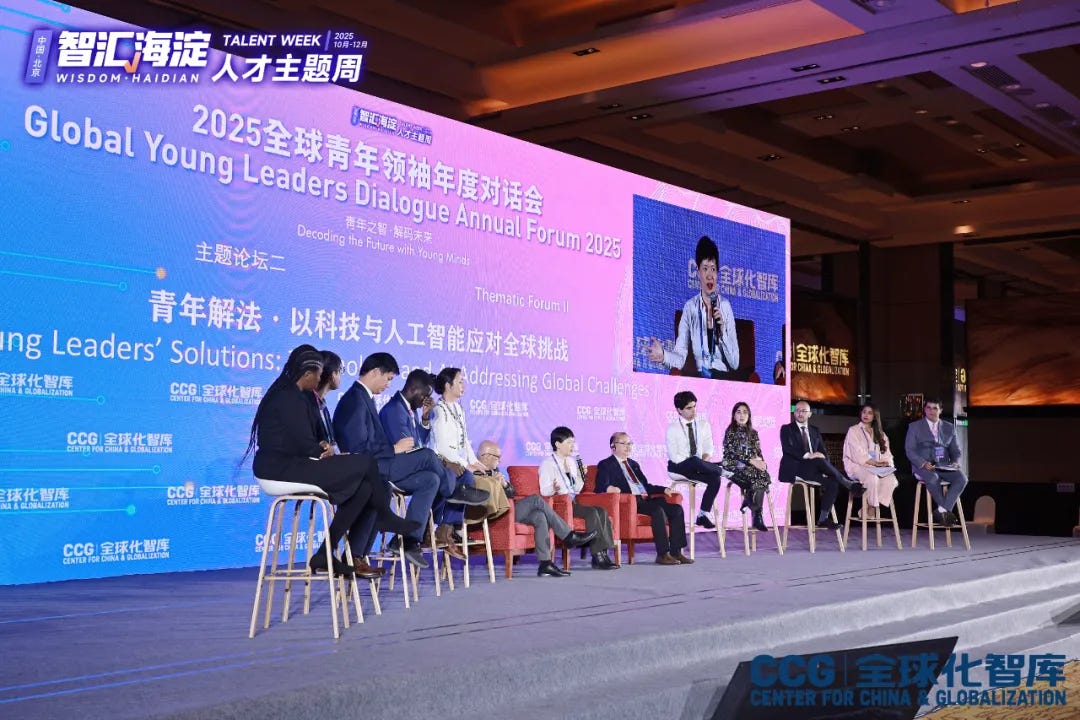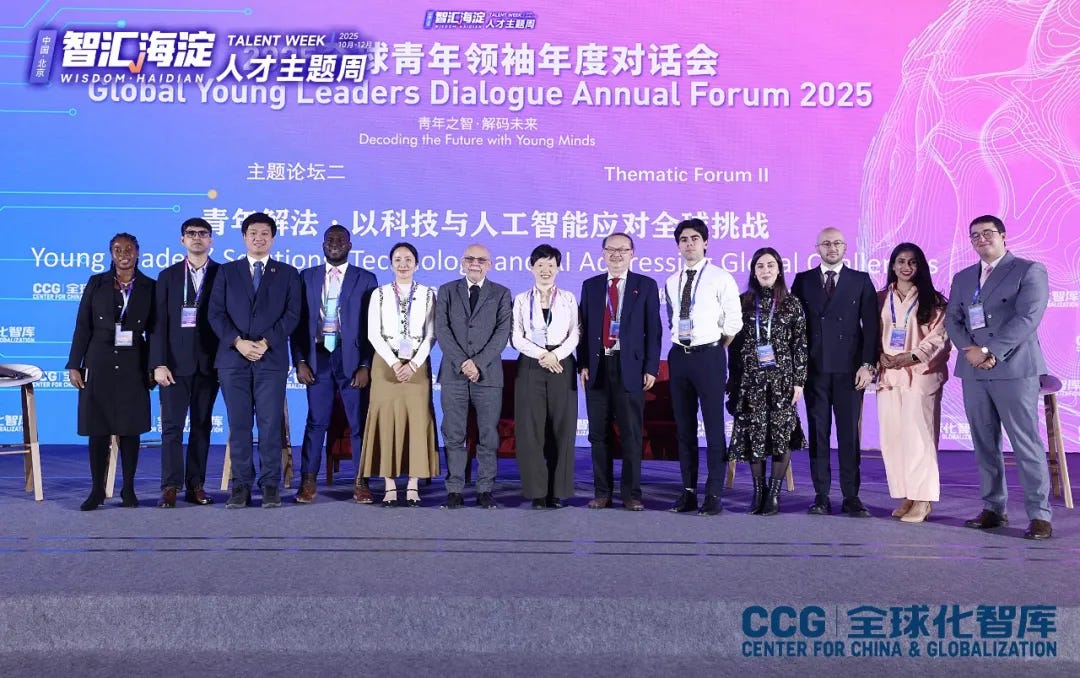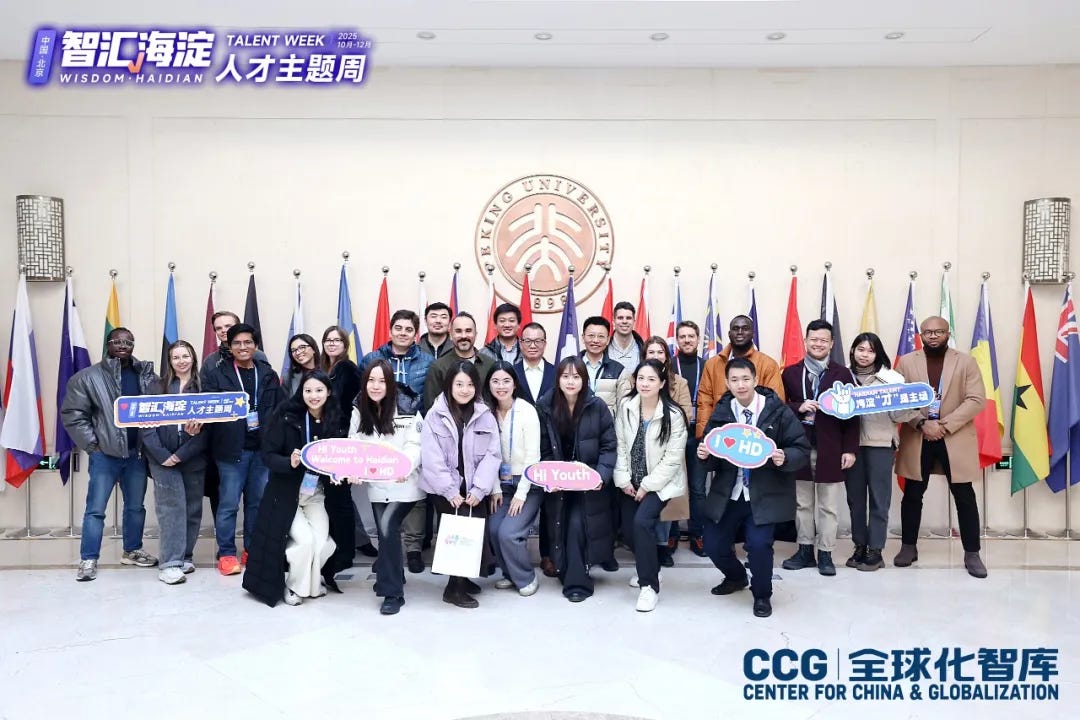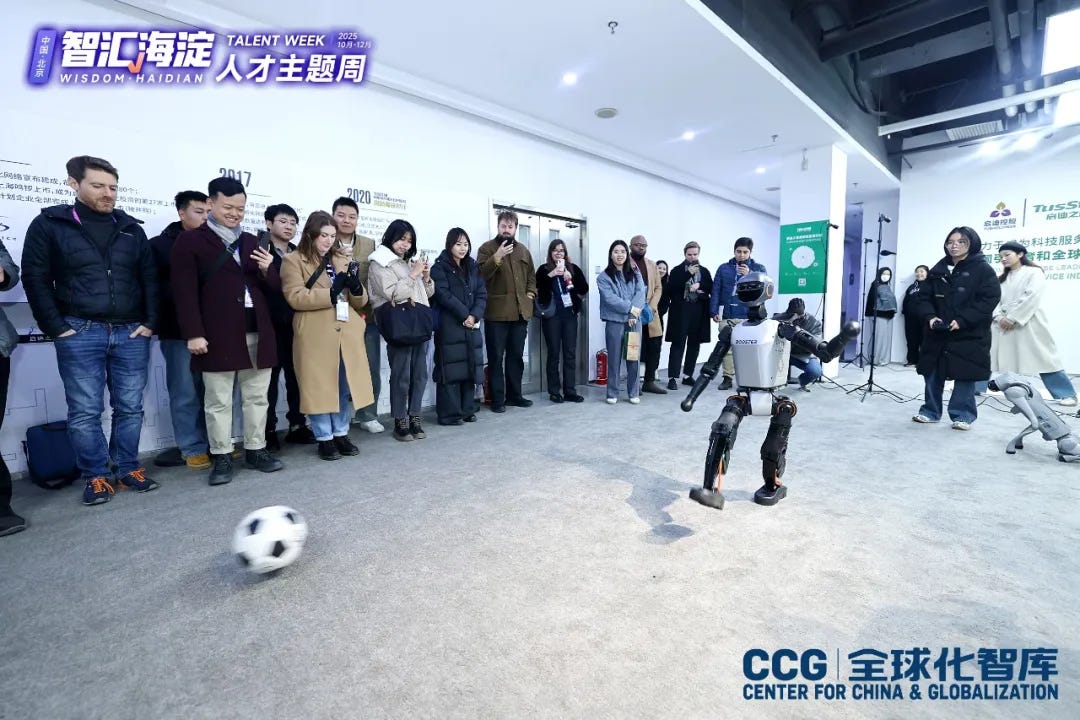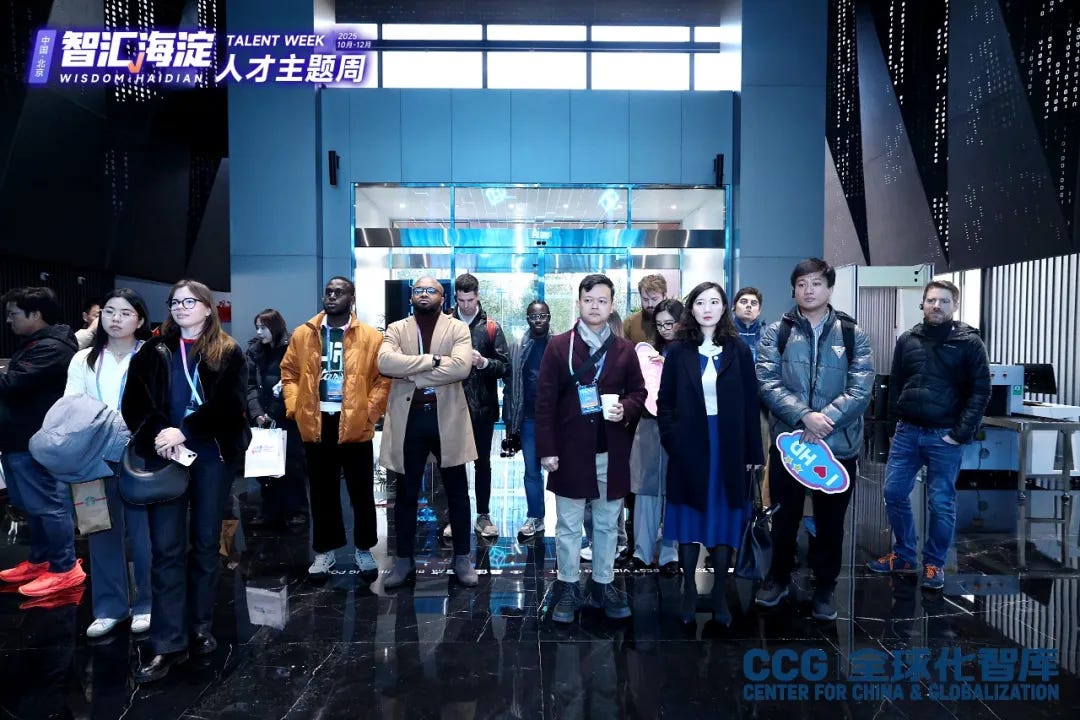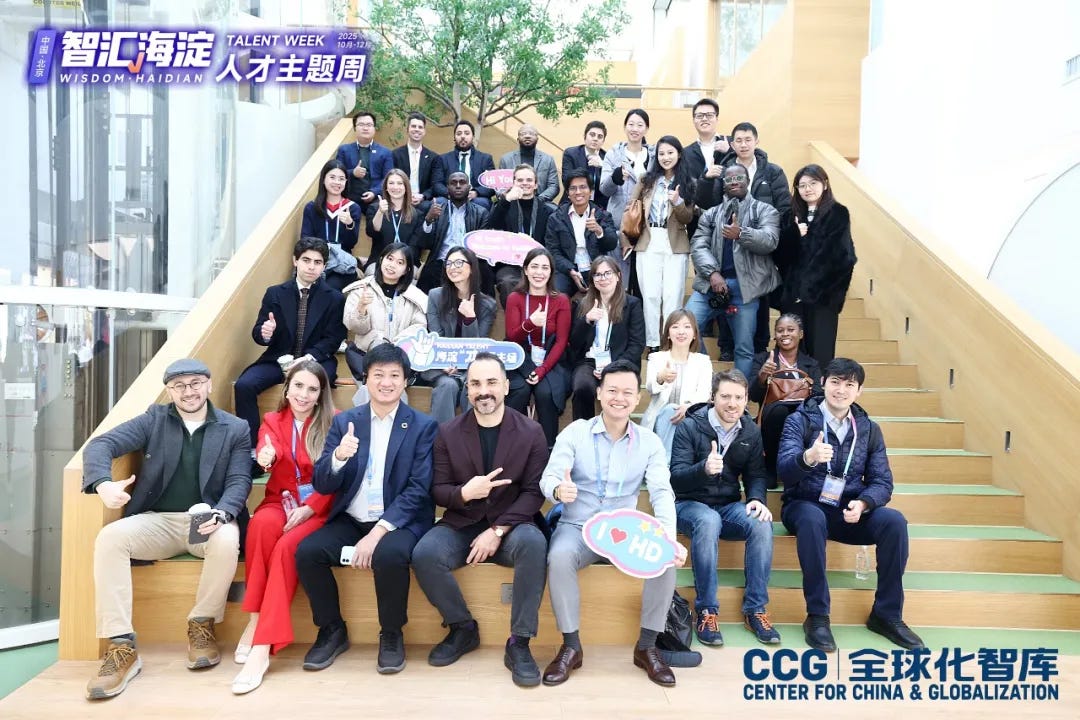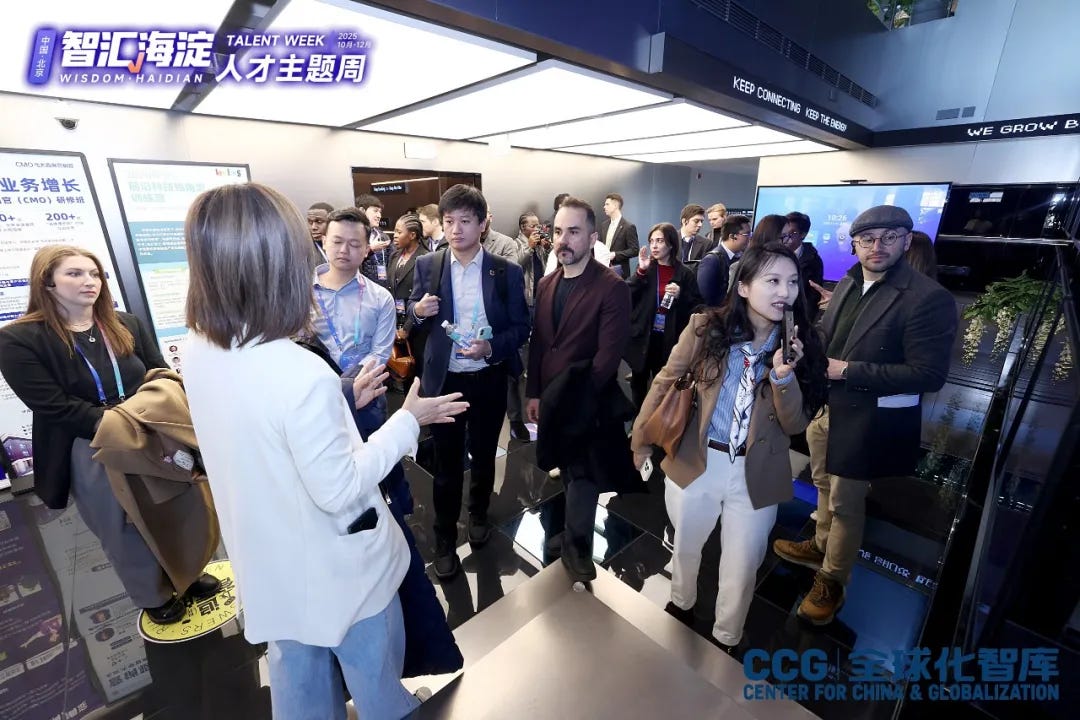Global Young Leaders Dialogue Annual Forum 2025 Held in Haidian, Beijing
Young leaders from across the world explore innovation ecosystems and AI cooperation.
The Global Young Leaders Dialogue (GYLD) Annual Forum 2025 was successfully held in Haidian District, Beijing, on 19 November 2025. The event was organized by the Center for China and Globalization (CCG), with support from the Bureau of Human Resources and the Foreign Affairs Office of Haidian District People’s Government of Beijing Municipality.
Themed “Decoding the Future with Young Minds”, the forum welcomed nearly 30 youth representatives from 21 countries—including the United States, Malaysia, Mongolia, Brazil, Singapore, Italy, France, Russia, Türkiye, and North Macedonia, alongside senior representatives from international organizations, government agencies, research institutions and leading companies.
A video recording of the event is available on CCG’s official YouTube channel.
Mabel Lu Miao, Co-founder and Secretary General of CCG, kicked off the annual forum by delivering the welcoming remarks.
Opening keynotes were delivered by:
Liu Yong, Secretary of the Communist Party of China (CPC) Group and Chairman of the Chinese People’s Political Consultative Conference (CPPCC) of Haidian District, Beijing
Amakobe Sande, UNICEF Representative to China
Siddharth Chatterjee, UN Resident Coordinator in China, who delivered his remarks via video message.
Ya-Qin Zhang, Chair Professor of AI Science and Dean of the Institute for AI Industry Research (AIR), Tsinghua University
Henry Huiyao Wang, Founder and President, CCG
The event also launched the STEM Pathways Club, jointly initiated by Miao Lu, officials from the Beijing CPPCC and Haidian District’s talent, foreign affairs and exit-entry authorities, representatives of Beijing Shichuang Science Park, as well as the community curator and World Economic Forum Global Shaper, Olesia Ermakova.
Leveraging Haidian’s strong technology ecosystem and CCG’s international talent resources, the platform aims to build a global network for young innovators to foster mutual support and cross-cultural exchange, helping them pursue innovation and entrepreneurship in China.
Following the opening, the first roundtable session titled “Young Leaders’ Strategies: Innovation and Entrepreneurship Ecosystems” opened with remarks by YU Teng, CEO of Thewake Systems Co.Ltd.
The session then featured contributions from
James B. Heimowitz, Vice Chairman of Alliance of Global Talent Organizations (AGTO)
ZHANG Yi, Director for International Project Integration, Project Management Institute (PMI) China
and six young leaders from Ecuador, the United States, Singapore, Brazil, France, and Malaysia.
Speakers exchanged views on topics such as “what defines a strong innovation and entrepreneurship ecosystem for young people?” and “how can governments, universities, and enterprises work together to support young talents’ innovation?” They agreed that an open, inclusive innovation environment requires cross-sector collaboration, better technology transfer and youth-friendly policies, with young people as active participants and beneficiaries. Mutual learning and joint development among global young professionals were seen as key to making innovation take root.
The second roundtable, themed “Young Leaders’ Solutions: Technology and AI Addressing Global Challenges,” opened with remarks by ZHANG Yunqi, Vice President of Huajian Group.
The session then featured contributions from
AN Shuo, Co-founder and COO of Huasheng Technology Group
Ali Shakir Al-Assam, Founder and Director at NewsSocial Cooperative Society
LEI Fengyun, Former Science and Technology Counselor at the Chinese Embassy in Austria, Former Chief Representative of the State Foreign Experts Affairs Administration in the UK
and seven young leaders from Ghana, Pakistan, Indonesia, Nigeria, the United States, Italy, and Türkiye.
Speakers explored questions such as “how can young leaders leverage technology and AI to tackle global challenges?” and “why must the international community develop shared standards for AI—and which priorities should come first?” They agreed that for technology to serve the global public good, AI governance must be rooted in ethics, fairness and transparency, supported by stronger cross-border and cross-sector cooperation on issues such as climate and energy transition. They stressed expanding meaningful youth participation in global governance and noted that a young talent-centered global tech collaboration network is emerging as a key driver of sustainable development and international cooperation.
In addition to the annual forum, on November 20, youth leaders were invited to attend CCG’s flagship event—the 10th China Global Think Tank Innovation Forum. CCG also arranged a rich program including visits to Peking University’s Yenching Academy and Zhongguancun Science City, along with a thematic workshop on “The Future Landscape of AI+ and International Cooperation.”


